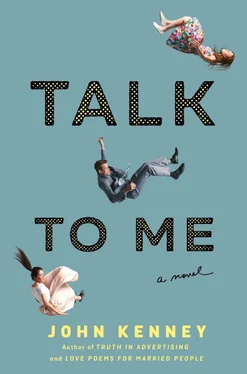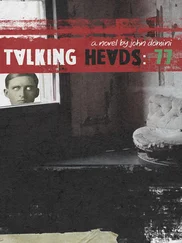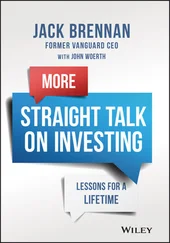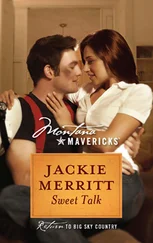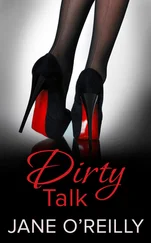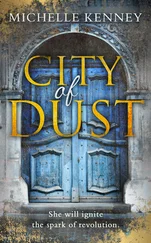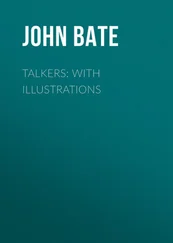Grace said this as a single sentence while putting Carmex on her lips, a thing she did ten to twelve times a day.
“You going?”
“Ted. Please.” Grace smiled.
Grace had suggested a story last year about the band. Ted agreed and to this day it was the greatest assignment of Grace’s life. It was the only story that she didn’t have to do any reporting for. Ted brought her to the interview with Eddie Vedder, at the Mercer hotel in SoHo. Grace could have died that day and lived a full life. Grace’s therapist felt differently but so be it.
“Jagdish. Getting any sleep?” Ted asked. Jagdish had a baby at home.
Jagdish smiled and walked over to Ted, holding out his oversized cell phone revealing a photo of a cherubic face, wide-eyed, loony smile.
“Look at that. What is she, a year?” Ted asked.
“Ten months.”
“Tell me her name again.”
“Sita,” Jagdish said, beaming. “It means goddess of the harvest in Hindi.”
“She’s beautiful.”
“Any advice?” Jagdish asked, smiling.
A second. Maybe two. Maybe a bit more. Ted wasn’t sure what to say.
No. No advice, actually.
Don’t love them too much.
Get ready to be hurt.
“You’ll know what to do,” Ted said kindly, half smile. He stood up.
“I just wanted to stop by and say… I don’t think I say it enough… you guys make me look a lot better than I am.”
“That would be impossible!” Murray shouted, though again, he’d not meant to speak.
Grace stood and walked over to Ted. She hugged him and Murray died a little inside. “Thank you, Ted.”
Ted was unsure what to do, so he simply patted her back. The hug went on too long.
“Okay, then,” Ted said. “See you tomorrow.”
• • •
Murray had meant to mention Cassini to Ted. He hustled down the hall.
“Ted,” he shouted.
Ted and Simon turned to Murray, looking at him as if at a crazy person.
“I forgot… Cassini, Ted.” Murray was grinning.
“Is it getting near?” Ted asked.
Murray nodded. “Ted, we have to do something.”
Simon said, “What the hell is Cassini?”
Ted started to say something but Murray jumped in. “The NASA probe to Saturn. It launched the year after we did. Almost twenty years ago. Pretty soon it’s going to crash into the surface of Saturn. A planned death. What a way to go.”
“Fascinating,” Simon said, fake smile.
They turned and walked away.
• • •
“You canceled on me. Who cancels on an old woman?”
It was Polly, Ted’s longtime agent and lawyer. Ted wasn’t sure how old she was. Maybe sixty-five. Maybe older. Five foot four, perhaps, and “pleasantly plump.” (Her words. “Ted I look like a god-damned pear. But a ripe one, I’ll tell you that.”) Never married. Lived in a stunning top-floor apartment on Riverside Drive with her cat, Hannah Arendt.
“Polly,” Ted said. “I didn’t cancel on you. I asked that we move it a few days.”
“‘A few days,’ he says. Like I’m chopped liver.” They were seated at Ted’s corner table at Cafe Luxembourg. Ted sipped a Ketel One, rocks, and Polly was chewing one of the three olives she needed for her martini. She chewed with her mouth open, unaware of the sound. Ted had never gotten used to it. They were waiting for their food. Ted had ordered salmon and Polly had ordered a steak with a side of mashed potatoes.
Polly raised her glass. “Happy freaking birthday.” Ted raised his glass and they drank.
“How long you want to keep doing this?” she asked.
“Drinking? A while.”
“I love Irish humor,” she said without smiling.
“The job? What else would I do?” Ted said. “Maybe five more years.”
“Do you still like it?”
Ted sensed a small change in tone. Polly was playing with the toothpick the olives had arrived on.
“I guess. Why?”
“‘I guess,’ he says. I guess. You’re a queer one, Teddy. A little birdie told me there was a bit of drama on the set a few nights ago. The night you canceled, in fact.”
“How do you know about that?”
“Boychik. I know about everything. That’s my job.”
“It was nothing. Lost my temper.”
“Not what I heard.” Polly looked at him, a mother’s look of concern. “Tell me you’re okay.”
“I’m okay.”
“Let’s try that again and maybe this time mean it.”
Ted grinned. “I’m okay, Pol. I hate birthdays.”
“Who doesn’t after the age of twenty-nine?” She sipped her drink. “Listen. Okay. Who’s your first call when something like that happens? Who’s your first call when anything like that happens? Aunt Polly. This is a person we’re talking about. I fix things. So nothing blows up. Are they fixing this?”
“It’s fine.”
The food arrived. Ted ordered another drink.
“Another martini?” the waiter asked her.
“Sonny. I’m a Jew,” she said through a mouthful of steak. “Which means I don’t drink like my handsome friend here. But I will be having dessert so stay close.”
• • •
That same evening, in Long Island City, a land far, far away from Ted’s Manhattan, two women walked home from a liquor store, lugging a case of Pabst Blue Ribbon. They walked past the end of the Dutch Kills, the cold and wind keeping the stench and whatever else haunted those toxic waters heading in another direction. Along Forty-Seventh Avenue, past the Taxi & Limousine Commission, past the Extreme Sports Paintball & Laser Tag place where the bankers and ad agency people held retreats—team building, slumming it in Queens for a night.
Natalia walked with her sister, Laura. Her best friend. Laura was younger by two years but acted older. Alpha tough. They walked past the City Ice Pavilion, where sometimes, on a weekday, when she hadn’t booked a hair and makeup job, Natalia would go by herself and skate for an hour or two. It always felt like being back in Zakopane, a resort town about two hours south of Kraków, in the Tatra Mountains of southern Poland. Her parents worked in the swank hotels in the winter and on farms in the summer. She’d grown up skiing, skating, snowshoeing with her father on his days off.
Natalia told her sister the story.
The network’s human resources department had called and asked that she come in. Natalia assumed they would apologize, that perhaps she’d meet with Ted. Mostly she hoped to be brought on full-time, instead of her permalance position, which had no benefits.
She waited more than an hour before being ushered into the office of a woman named Donna. Donna was fiftyish, unsmiling, a person uniquely unsuited to be in human resources due to an unnatural lack of compassion, hardened, most recently, by an ugly divorce. Without making eye contact, Donna motioned for Natalia to sit.
Natalia sat silent, stone-faced, embarrassed. She wanted to cry but wouldn’t let herself, her father’s daughter.
Donna said nothing at first. She continued filling out the paperwork, checking it against something on her large, antiquated computer screen. The longer she was ignored, the angrier Natalia got.
“We’re letting you go, of course,” Donna finally said to her desk. She managed to look up, a grin crossing her overly made-up face.
Natalia hadn’t been expecting this. She thought she might be reassigned. A morning show. Something. But not this. It came out fast. “Are you firing him, too?”
Donna’s grin disappeared.
“Do you have any idea who you’re talking about?”
“Yes. A man who called me a Russian whore. I’m neither.”
“What?”
“He did.”
“That is a very serious charge you’re making.”
Читать дальше
